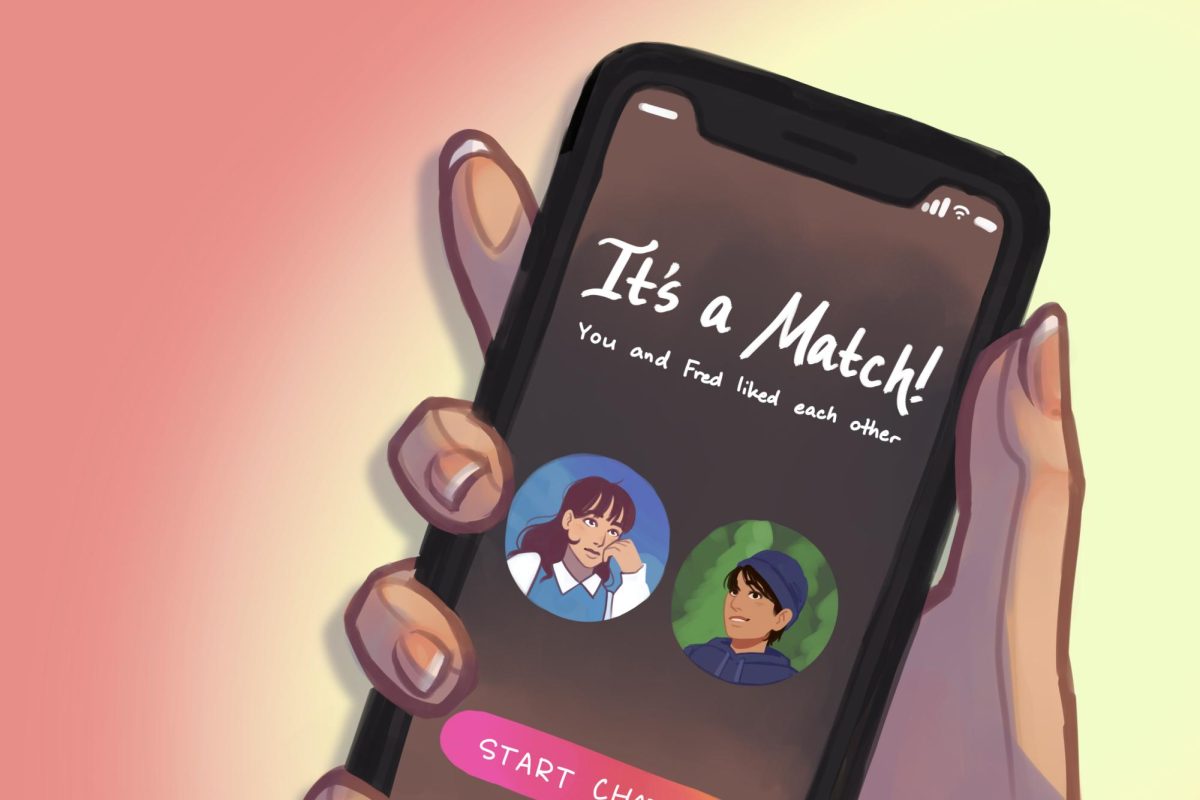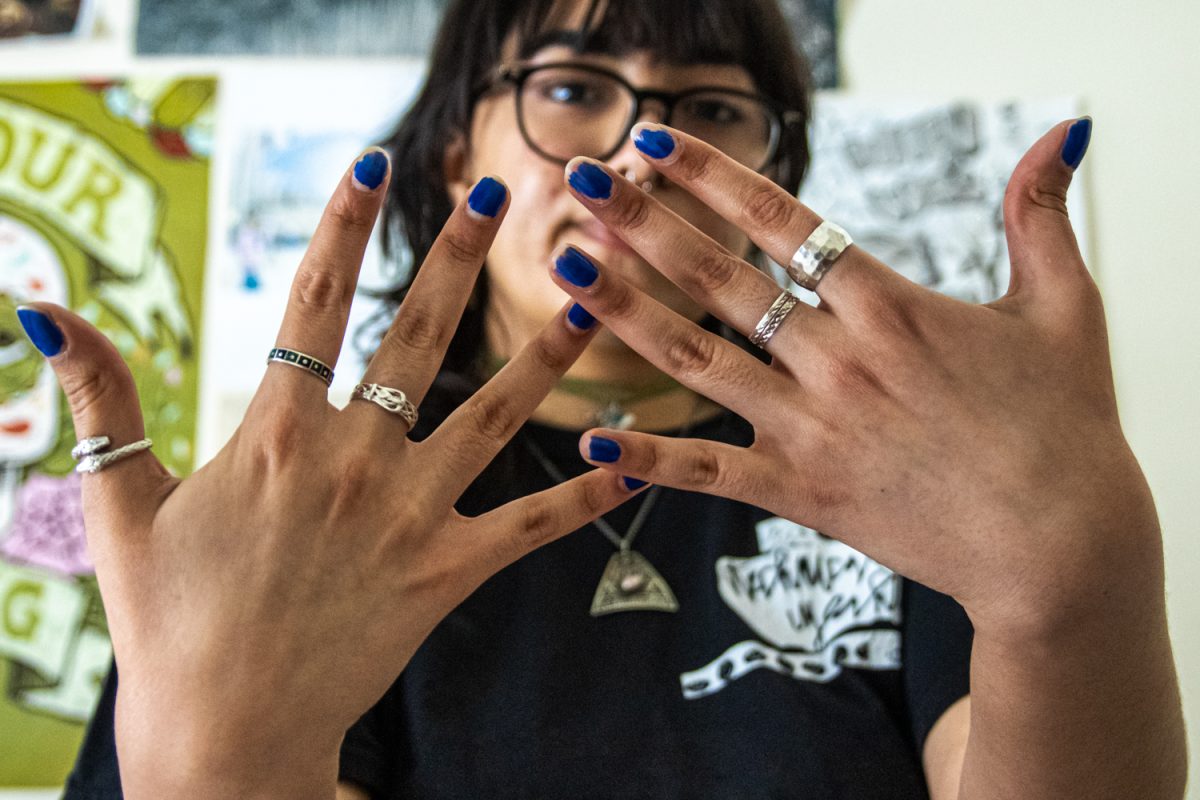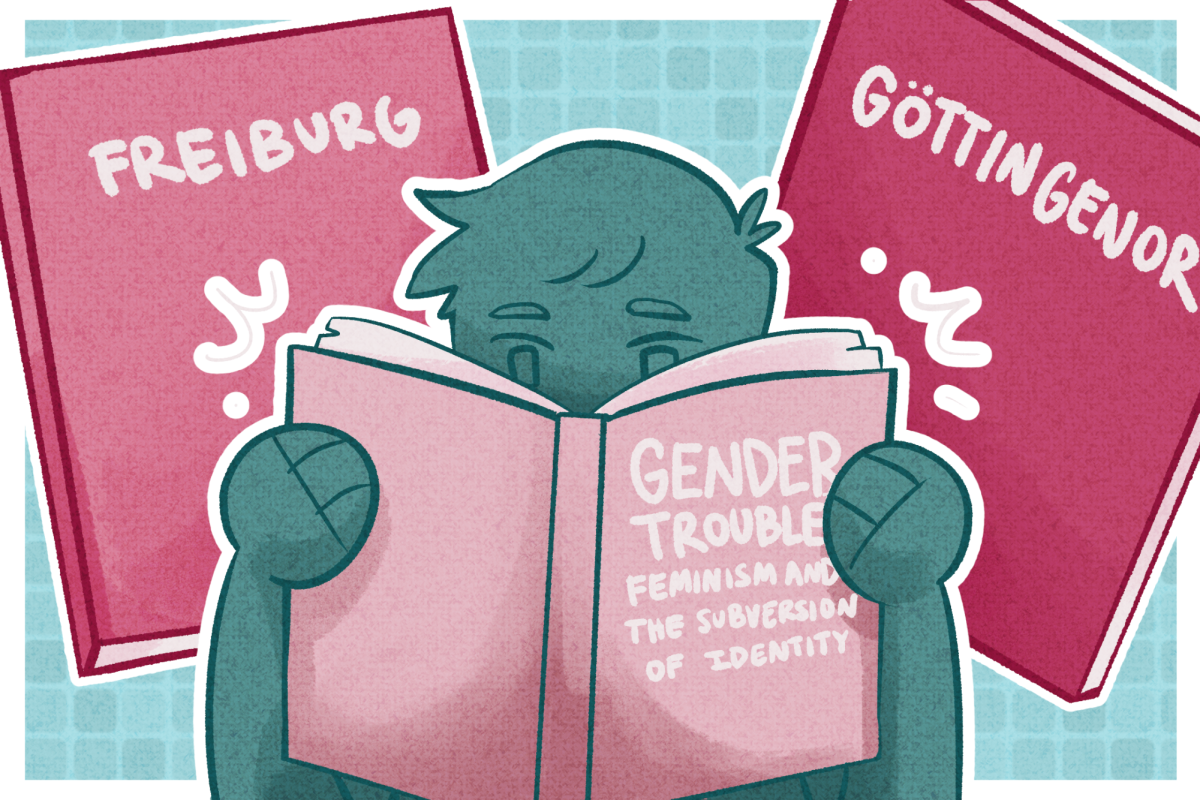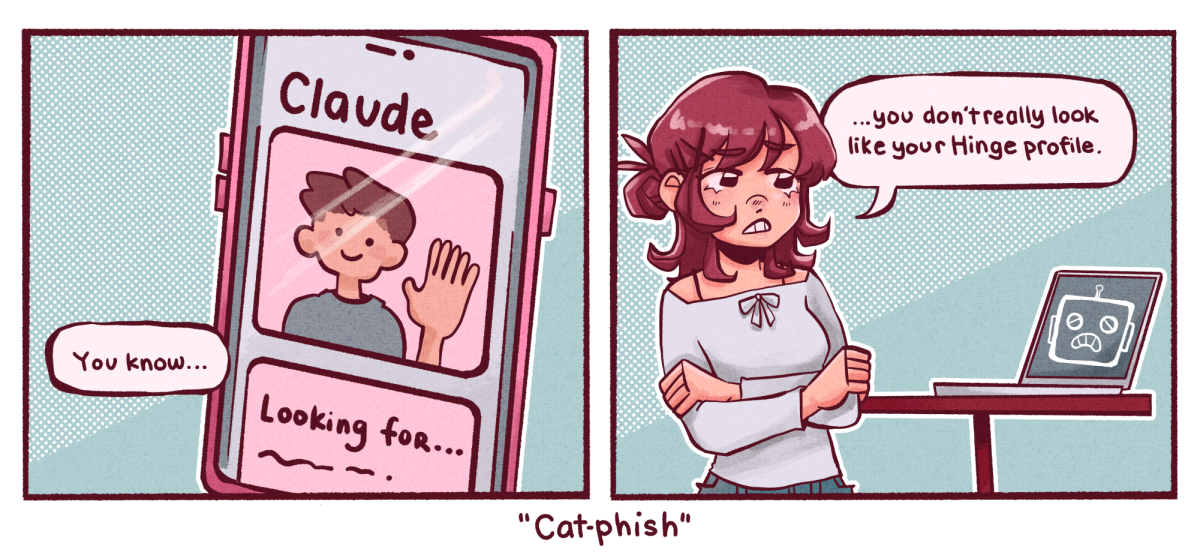Online dating is now the most popular way for people to couple up, according to researchers at Stanford. With the four biggest players — Tinder, Bumble, Hinge and Grindr— having a combined revenue of almost $2 billion in 2024, the potential for profit and love lies at our fingertips.
On the front end, the apps appear straightforward. They usually follow a gamified model introduced by Tinder in 2012: left for no, right for yes. If two people like each other, a match is made. But behind the scenes, how do these apps determine compatibility? And what does this technology mean for relationships and love?
Machine yearning: The algorithms behind the apps
“We’re using algorithms to make decisions about partners, whether we realize it or not,” said Liesel Sharabi, associate professor of human communication at Arizona State University. “Our choice of a romantic partner, especially a long-term romantic partner, is one of the biggest choices we’re ever going to make.”
Sharabi said most dating app algorithms are akin to “black boxes” because they are proprietary.
Get The Daily Illini in your inbox!
However, she states collaborative filtering is commonly used to identify potential partners. Collaborative filtering works by recommending people based on other users who have similar tastes, Sharabi said.
“What it’s doing is taking information about your preferences about a partner … as well as the tastes (of) people like you, and it’s using that to offer up recommendations,” Sharabi said.
This might sound familiar — dating apps are not the only platforms that use collaborative filtering. Take streaming, for example.
“So you’re on Netflix, you watch a movie and it’s going to recommend other movies based on what other people watch next,” Sharabi said. “Dating apps are kind of doing the same thing. You like this profile; you might also like this other profile.”
Another compatibility algorithm originates from chess. The Elo rating system was introduced to calculate a player’s skill level relative to the rankings of their opponent. Tinder uses Elo to match users with others in a similar “league.”
In chess, the rating gap between the two players determines how many points they win or lose in a game.
According to Chess.com, “Since a much higher-rated player is expected to win, they do not receive a lot of points for a victory against a player rated much lower. Their opponent also does not lose a significant amount of points for the defeat.”
Tinder — which claimed to retire its use of Elo in 2019 — ranked users on desirability rather than skill.
“On Tinder, ratings work similarly, with a right swipe from someone desirable having the greatest impact on a user’s score, just as a win against a Grandmaster in chess would matter more than beating an amateur player,” Sharabi said in the Harvard Data Science Review.
Debugging the heart
However, assessing the efficacy of these algorithms poses a challenge. According to Sharabi, one reason is that the incentives of the dating companies may be misaligned with users’ best interests.
“It’s incredibly difficult because, first of all, we don’t know exactly what (dating apps) are doing,” Sharabi said. “Platforms are not always the most transparent about that — part of the reason is that it’s how they make money … and another reason is that they don’t want users gaming the system.”
At its core, dating apps suffer from success: Creating couples simultaneously shrinks the apps’ user base.
“Online dating is a really tough business because you lose users when they’re unhappy with the experience, they’re dissatisfied, but you also lose users when it works really well, and when they’re very happy, and they end up in a relationship,” Sharabi said.
Additionally, an individual’s belief in the accuracy of an algorithm to determine compatibility can influence their behaviors. This effect can occur even if the algorithm’s impact is just a placebo.
“People’s beliefs about what these algorithms are doing also really matter; so even if they did nothing at all, believing that an algorithm is effective in matching you with somebody can actually make you behave differently,” Sharabi said. “It can become a self-fulfilling prophecy where you orient towards partners differently, and that alone can lead you to better outcomes.”
In a 2023 Pew Research Center study on online dating, most American adults were skeptical (35%) or unsure (43%) if the computer program used by dating sites or apps can determine if two people will eventually fall in love. Only 21% believed the algorithms could predict future romances.
Beyond the bits
In the same study, Americans are also divided on whether online dating is a safe way to meet others. Most argued in support of mandated background checks before someone can create a profile.
While pursuing the perfect match, users have to sacrifice personal information. This can lead to privacy concerns between users, said Camille Cobb, professor in Engineering.
“It would be nearly impossible to use a dating app without revealing your sexual orientation, without thinking a little bit about your own gender and disclosing some of that, and then for health issues that are potentially relevant to sex, like sexually transmitted diseases or infections,” Cobb said.
For example, Cobb said users might reveal less information on their profiles. They might fear coworkers perceiving them or finding them outside the app.
Cobb’s research found that many people interpreted a sparse profile as indicating “a lack of effort and a lack of commitment to finding a romantic partner, rather than being about privacy concerns.”
Despite the popularity of dating apps, there appears to be a recent decline in their use. More people are turning to hobbies or activities such as running clubs to meet other singles.
“It almost seems like there’s some nostalgia right now for meeting face-to-face,” Sharabi said. “I think a lot of people are feeling burnout and frustrated with (dating apps).”
Research backs Sharabi’s observations. Nearly 80% of adult participants in a study said they felt some level of emotional burnout from dating apps.
Artificial intelligence is also changing the online dating world. AI now integrates into features such as profile suggestions, message responses and interactive coaching. Sharabi noted that she is unsure of its impact or reception by users.
“I don’t know to what extent the platforms are going to kind of embrace all of this, or if it’s going to lead to … (people) just meeting in person, because you can no longer trust anybody on dating apps because of AI,” Sharabi said.
Match Group, which holds the largest portfolio of online dating platforms, announced an increased investment in AI features. An unnamed AI assistant on their platforms is set to release in March 2025. Match Group’s subsidiaries include Tinder, Hinge, OKCupid and Match.com. CEO Bernard Kim said an “AI transformation” will shape the next phase of the company to investors in December 2024.
“Technology’s role in our dating lives is not going to go away, so I think we’re at a point where it’s kind of up to us to figure (it) out,” Sharabi said. “How can we actually make this a good experience for people and something that’s connecting us instead of driving us further apart?”








